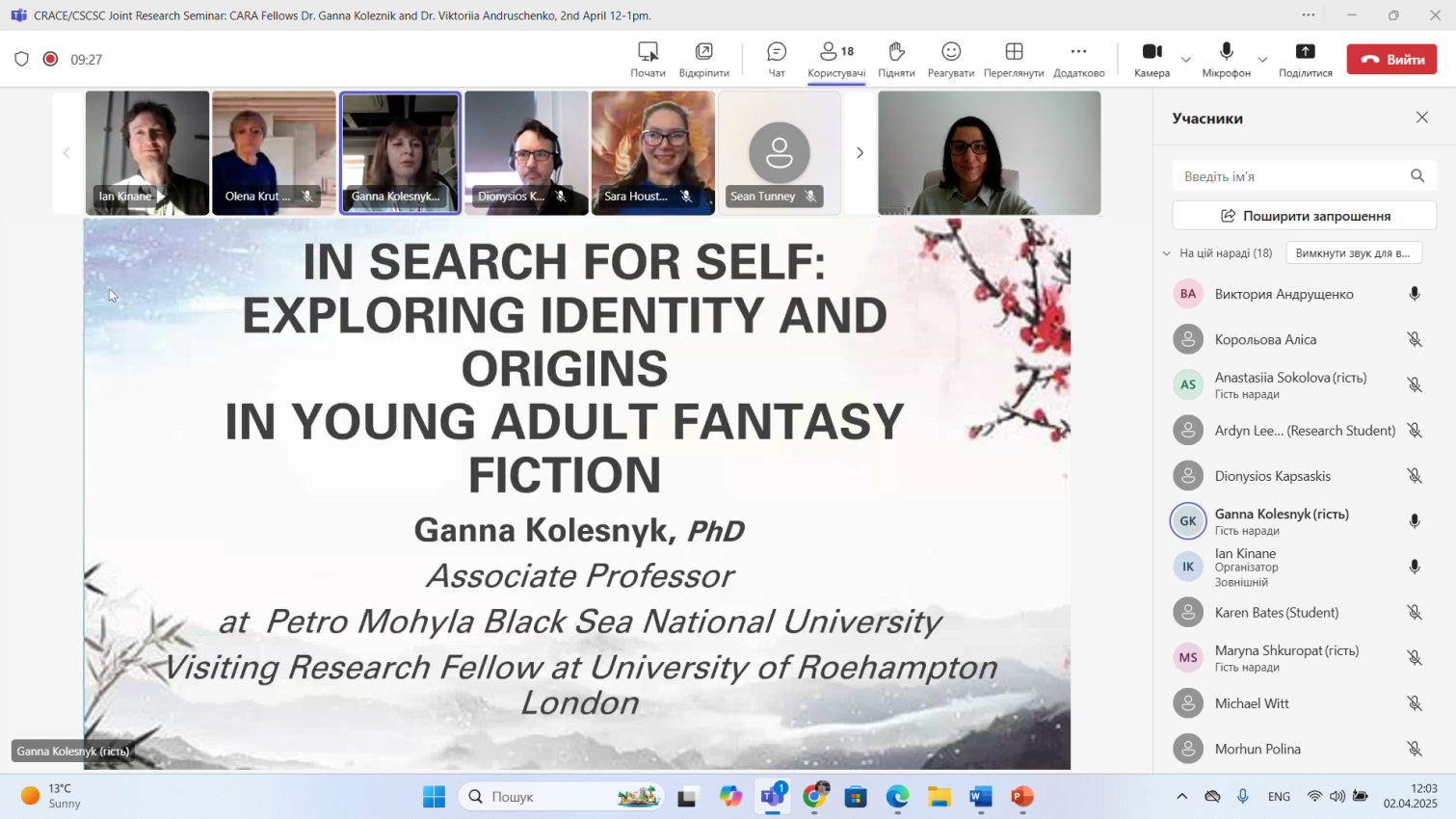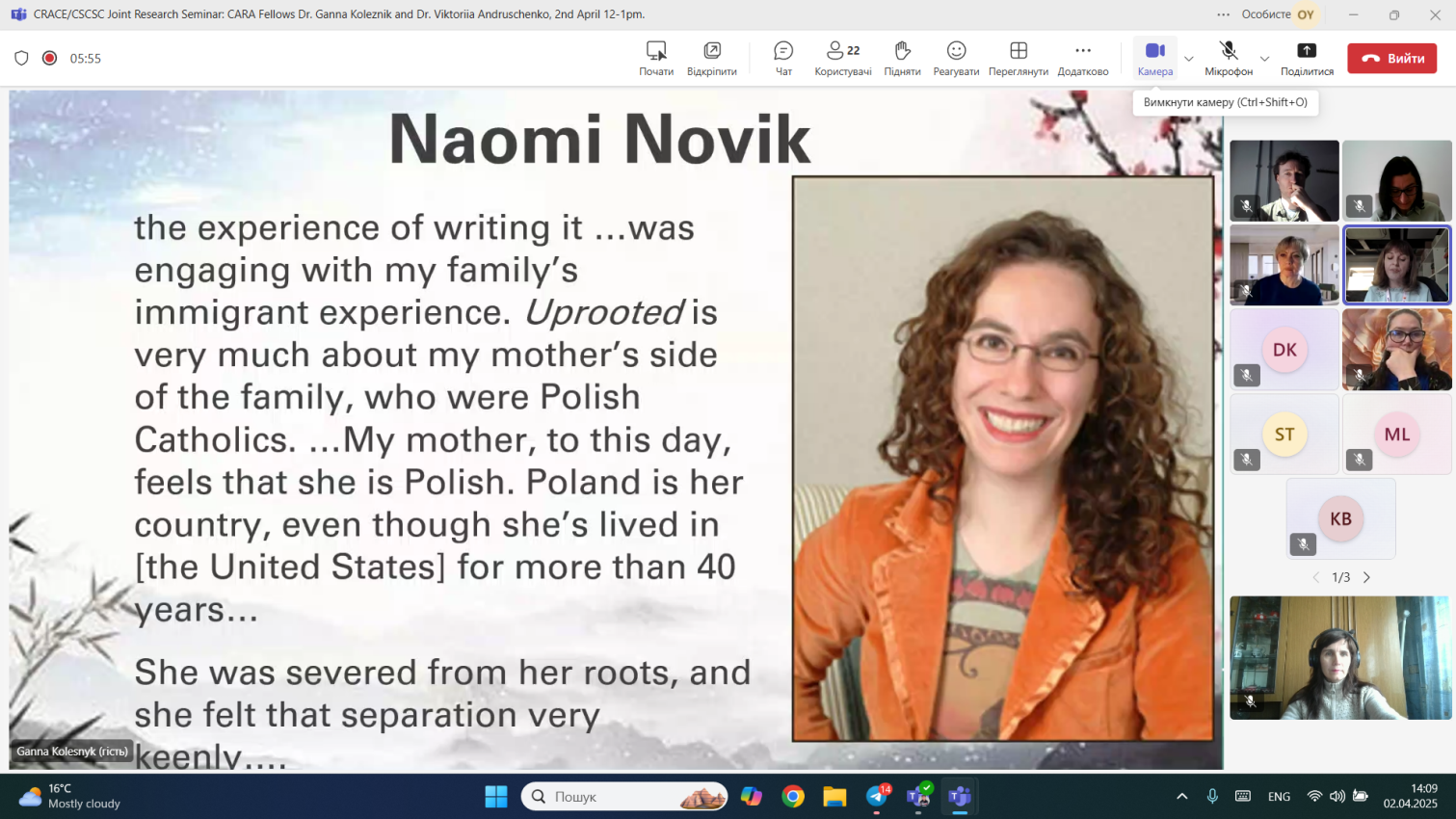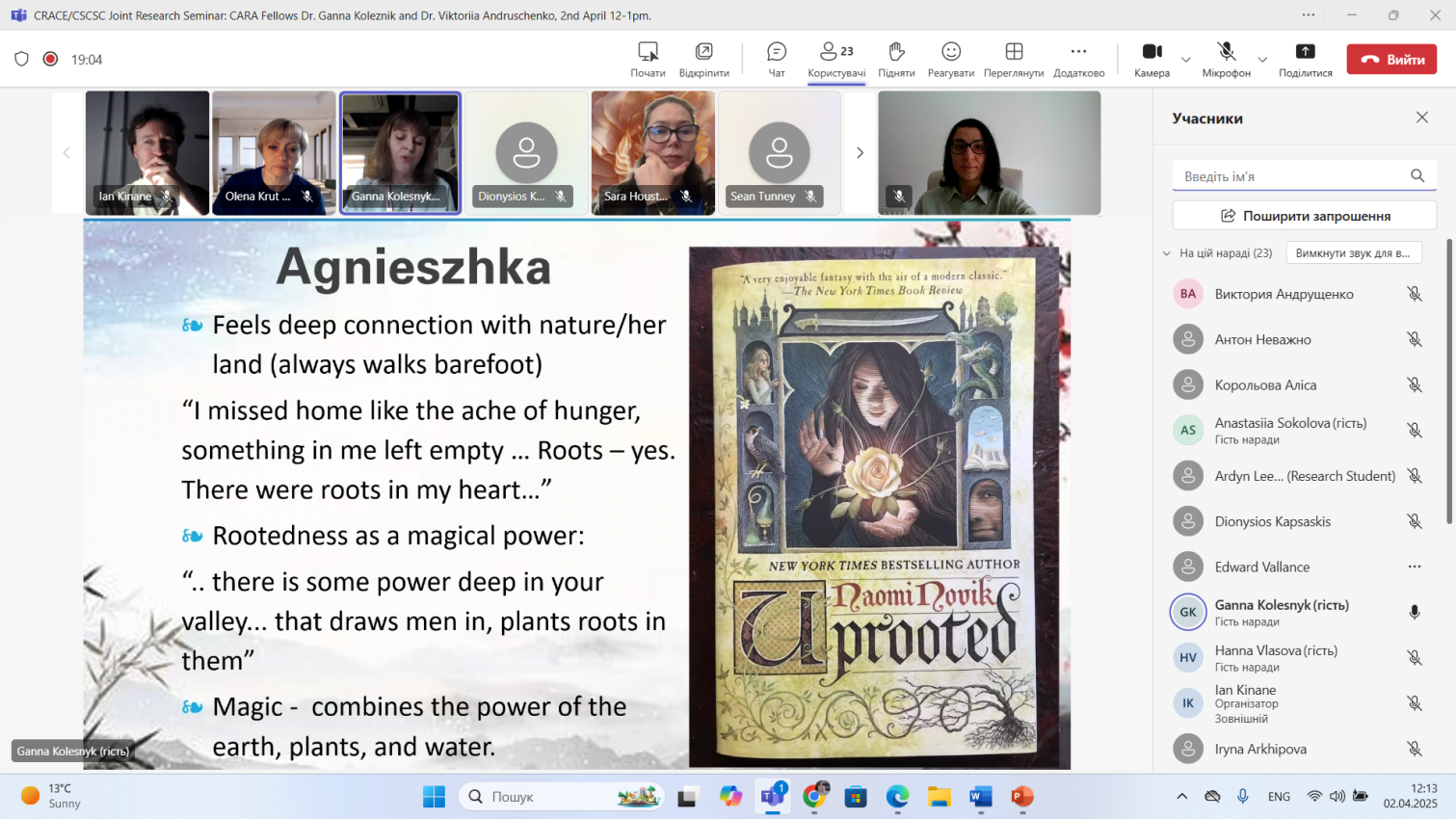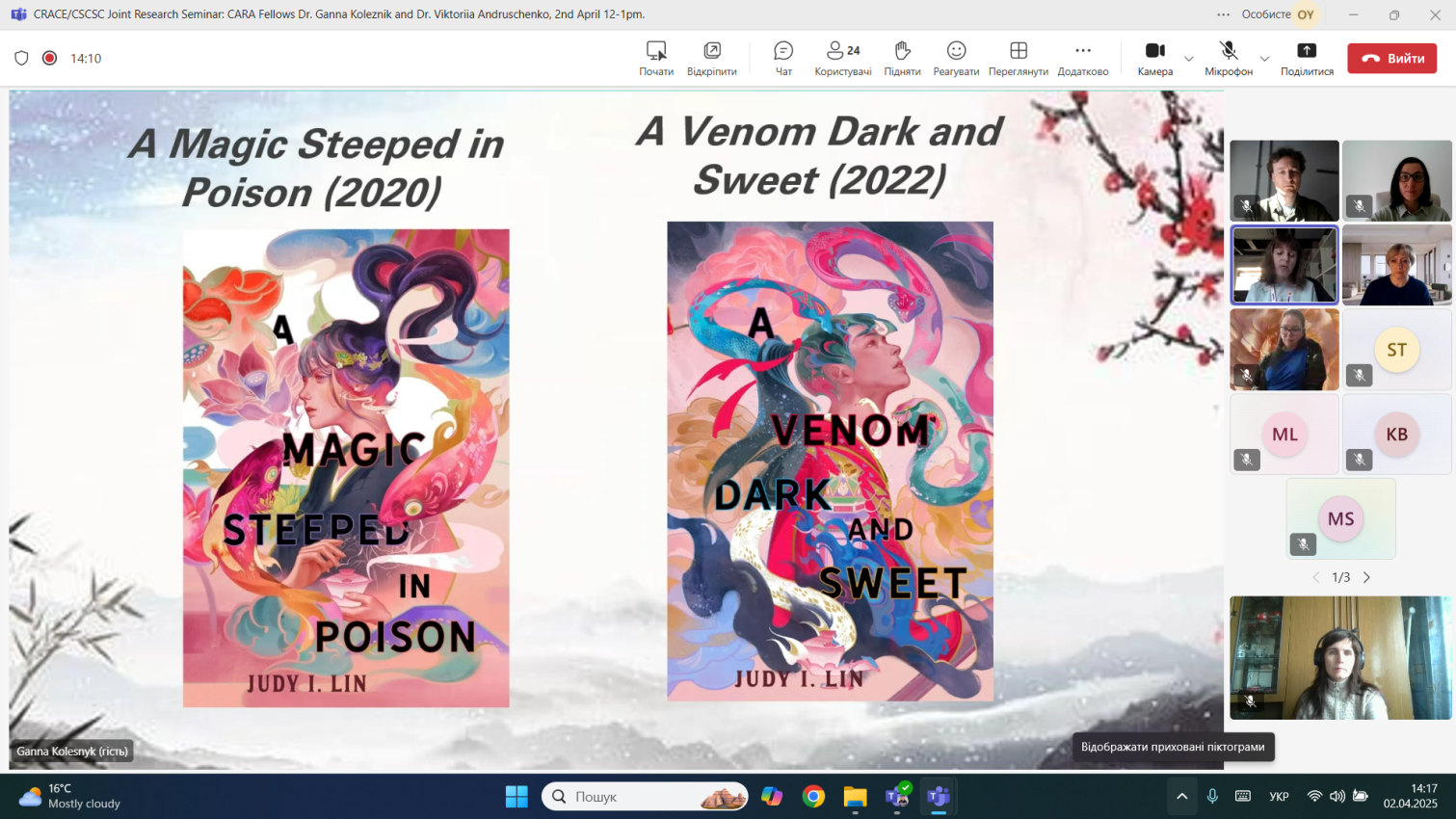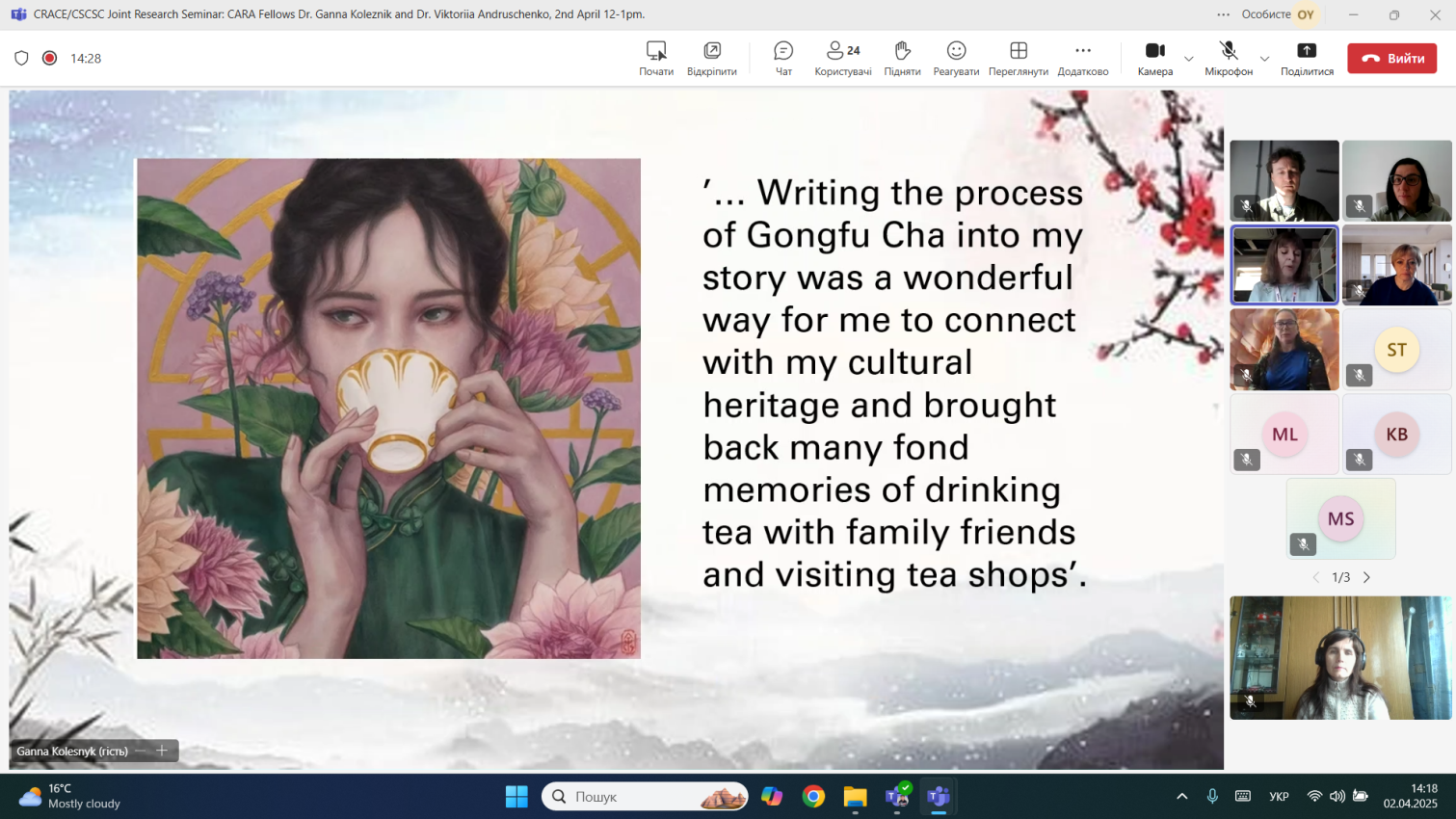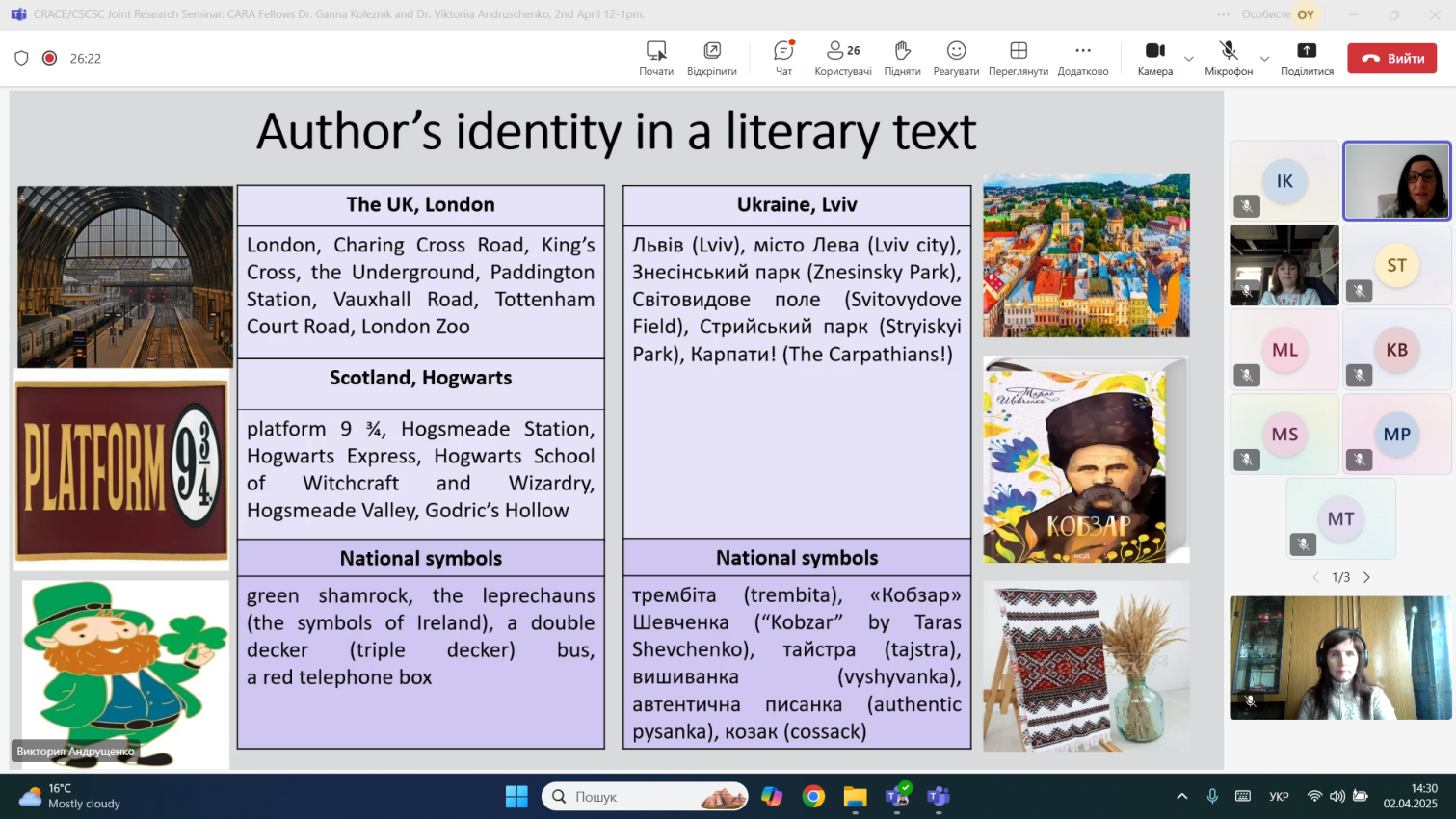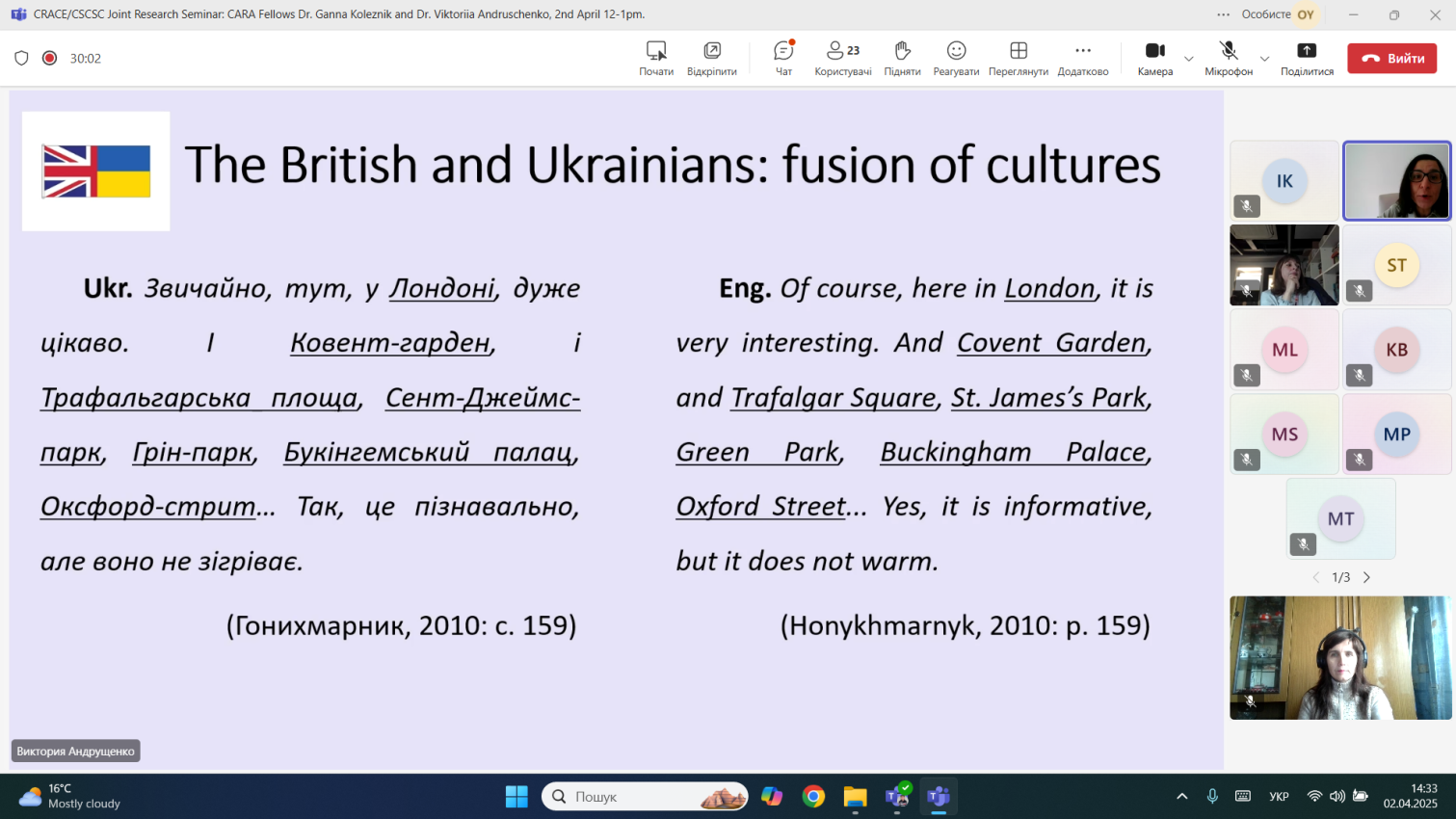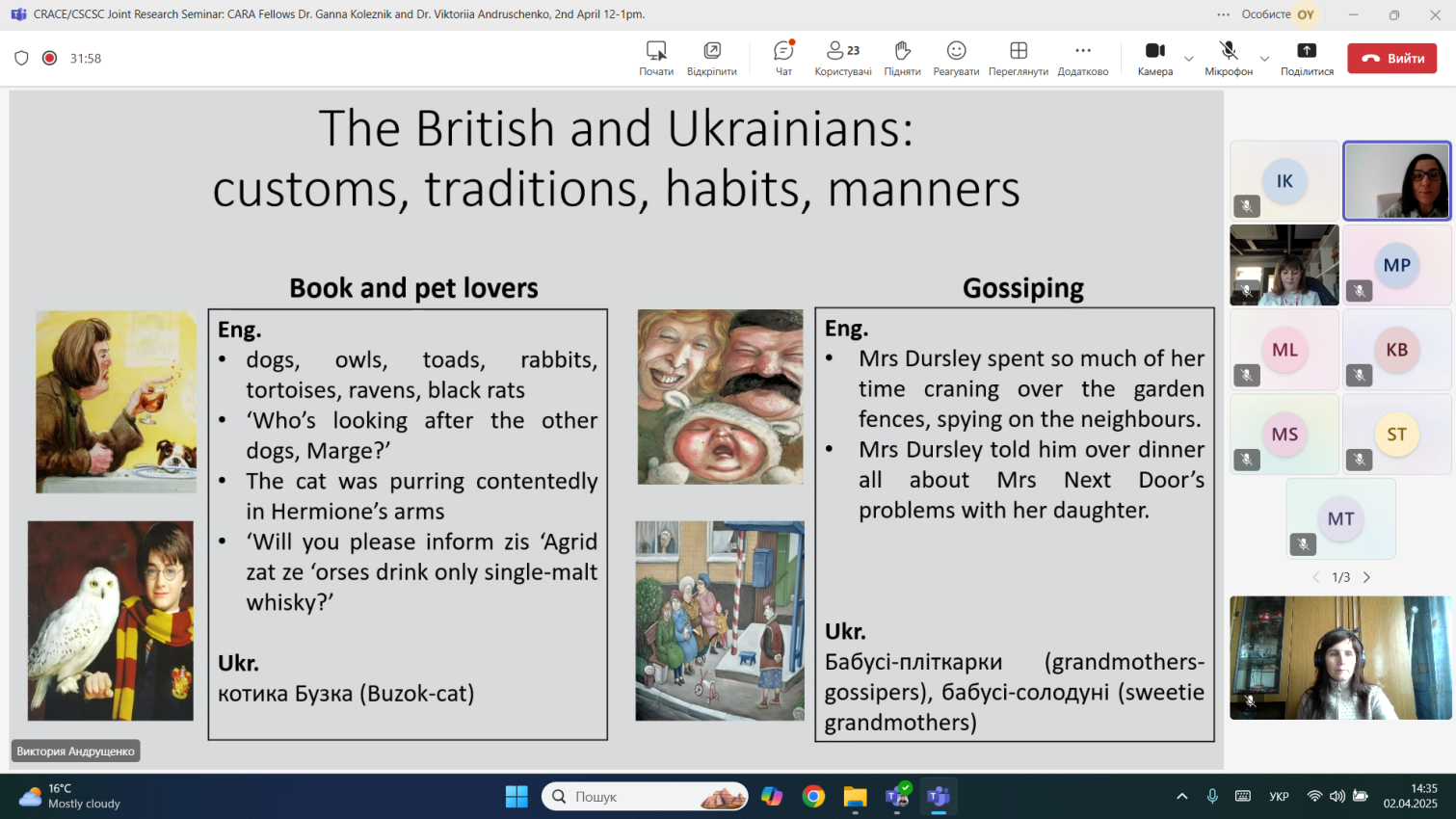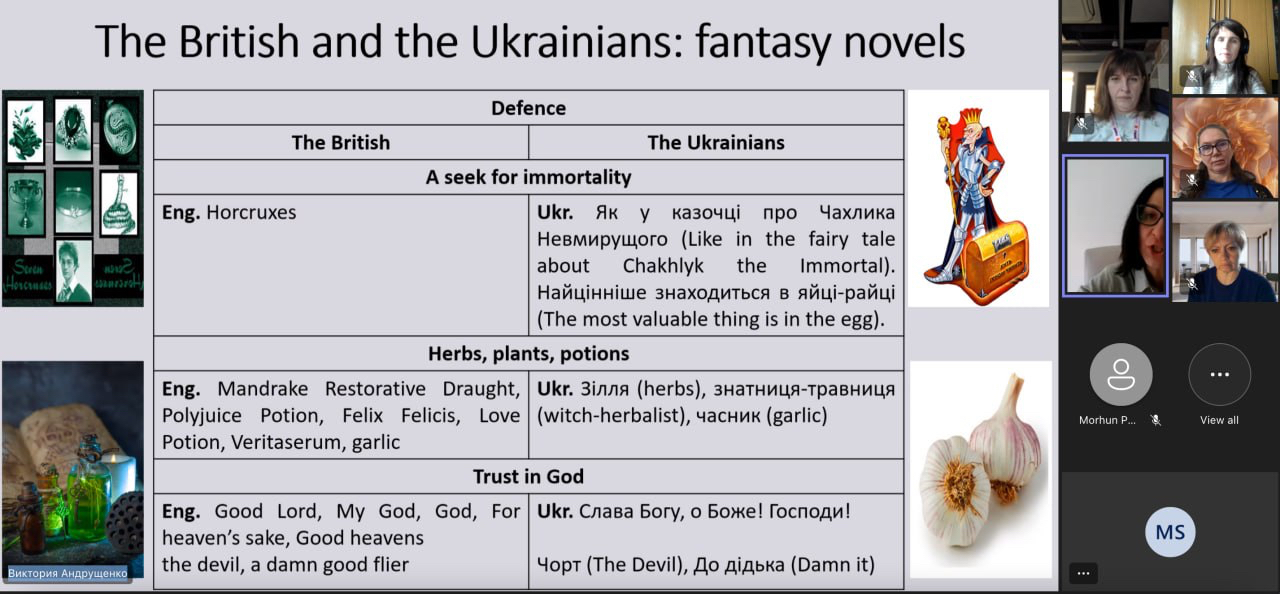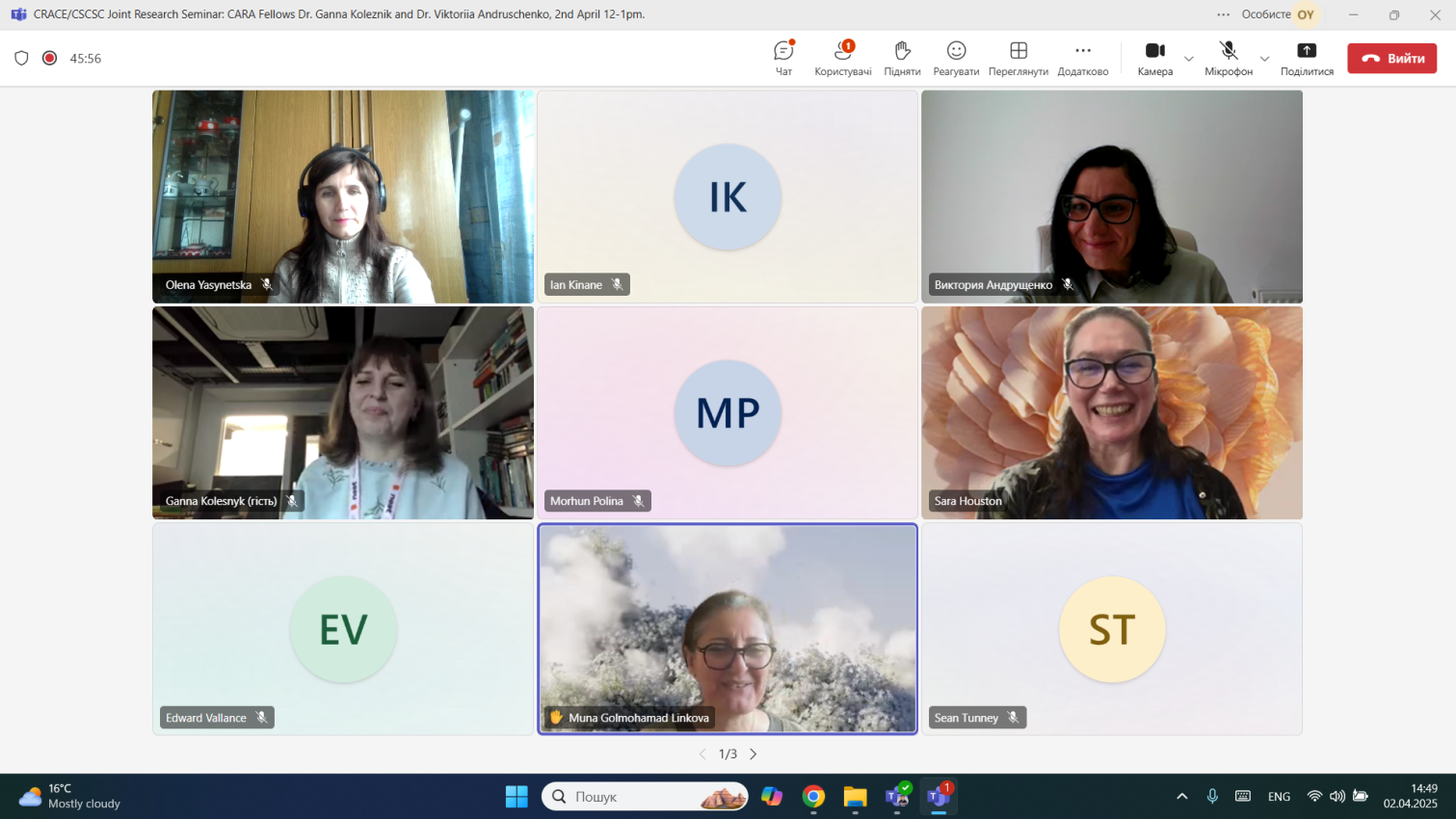On April 2, 2025, teachers and students of the Department of English Philology and Translation attended guest lectures as part of an international scientific seminar organized by the directors of two centers (СRACE (The Centre for Research in Arts and Creative Exchange) - Professor Sarah Houston) and CSCSC (The Centre for Research in Society, Culture, and Social Change) - Dr. Ian Keenane) of the University of Roehampton, London, Great Britain. The lecturers were Hanna Kolesnyk (lecture topic: “In Search for Self: Exploring Identity and Origins in Young Adult Fantasy Fiction”), Candidate of Philological Sciences, Associate Professor of the Department of English Philology of the Black Sea National University named after Petro Mohyla, and Viktoriia Andrushchenko (topic: “A Common-Distinctive Insight into the British and Ukrainian Cultures through the Perspective of Their High-Profile Fantasy Novels”), Candidate of Philological Sciences, Associate Professor of the Department of English Philology and Translation at the Horlivka Institute of Foreign Languages, who are fellows of the British Academy (The British Academy Researcher at Risk Fellowship Programme) and are currently conducting their scientific research at the University of Roehampton.
Hanna Kolesnyk introduced the audience to fantasy works for young people (Young Adult Fantasy Fiction), enriched with cultural and intertextual connections, descriptions of memories and traumatic experiences, which certainly influences the formation of the identity of young people (aged 12 to 18) who read them.
Victoria Andrushchenko informed the participants of the scientific event that the identity and cultural affiliation of the author (category of addressee) are reflected in fantasy novels (English-language works about Harry Potter by J. Rowling and Ukrainian-language works by D. Korniy "Rainbow Chaser", D. Korniy, T. Vladmirova "Wings of the Color of Clouds") by repeated culturally marked lexemes, which ensure the coherence of the text at the structural, semantic, communicative and pragmatic levels. This approach allowed us to compare literary presentations of British and Ukrainian cultures, to establish typical and distinctive features, which in general will contribute to the development of intercultural communication between the British and Ukrainian communities, including academic ones.
We sincerely thank the lecturers, guests, and organizers of the seminar! We hope for further scientific cooperation!


